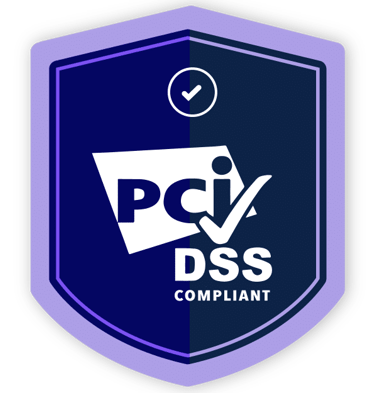Clinical Record Review in Hospice Care: Ensuring Comprehensive and Personalized Patient Assessments
Ensure high-quality hospice care with timely clinical record reviews, comprehensive assessments, and regulatory compliance. HealthBridge Consulting provides expert support to optimize patient care and documentation.


Clinical Record Review in Hospice Care: Ensuring Comprehensive and Personalized Patient Assessments
In hospice care, ensuring that patients receive the best possible care involves a thorough and continuous evaluation of their needs and conditions. One of the most crucial aspects of this process is the clinical record review. A well-documented and accurate clinical record helps hospice providers track patient progress, update care plans, and ensure compliance with regulatory standards. This article dives into the critical aspects of clinical record review in hospice care, focusing on the timing, content, and regular updates necessary to provide high-quality, personalized care.
1. Importance of Timely Initial and Comprehensive Assessments
The clinical record review process begins with the timely completion of the initial assessment. According to Medicare and state regulations, the hospice Registered Nurse (RN) must conduct the initial assessment within 48 hours of the patient’s admission, unless the physician, patient, or their representative requests an expedited assessment. This assessment is vital to identifying the patient’s immediate care needs, ensuring that no critical issues are overlooked during the early stages of care. Learn more.
Following the initial assessment, the hospice must complete the first comprehensive assessment no later than five calendar days after the start of care. This more thorough evaluation helps establish a baseline for ongoing care and sets the stage for developing a comprehensive care plan that addresses the patient’s medical, emotional, and psychosocial needs. Learn more.
2. Regular Updates: Keeping the Care Plan Relevant
The patient's condition can change rapidly in hospice care, making it crucial for the comprehensive assessment to be updated regularly. Hospice providers are required to review and update the assessment in collaboration with the patient's Interdisciplinary Group (IDG), which includes the patient’s attending physician (if applicable). Updates to the comprehensive assessment should happen as frequently as needed, but no less than every 15 days. This ensures that the care plan remains aligned with the patient's evolving needs. Learn more.
3. Comprehensive and Person-Centered Care Planning
One of the primary goals of the clinical record review process is to confirm that the hospice care plan is person-centered and individualized. Each patient has unique needs based on their medical condition, preferences, and goals for end-of-life care. As part of the clinical record review, providers should ensure that the care plan addresses all aspects of the patient’s condition, including complications, risk factors, functional status, symptom severity, and the imminence of death. By identifying these factors early and adjusting the care plan accordingly, hospices can ensure they are providing optimal care.
Additionally, the goals of care should be clearly outlined in the comprehensive assessment. These goals must reflect the patient and caregiver’s wishes and should be measurable and quantifiable whenever possible. Clear goals allow hospice teams to track progress and adjust the care plan to ensure that patient comfort and quality of life are maintained throughout their care. Learn more.
4. Addressing Pain, Symptom Management, and Emotional Support
A critical component of any hospice care plan is the management of pain and other symptoms. Regular assessments must document the patient’s pain levels, the effectiveness of prescribed treatments, and any changes to the patient’s symptoms. In addition to managing physical symptoms, the comprehensive assessment should also address spiritual and psychosocial needs, as these are integral aspects of holistic care in hospice settings.
Hospice providers should ensure that the clinical record includes regular evaluations of the patient’s spiritual well-being, emotional support needs, and whether additional interventions or referrals are required to meet these needs. The goal is to provide a comprehensive and compassionate approach that focuses on the patient’s physical, emotional, and spiritual comfort. Learn more.
5. Medication Review: A Critical Component of Clinical Records
Medications play a central role in managing symptoms in hospice care, especially for patients with advanced illnesses. It is essential for hospice providers to carefully review the medications that patients are taking, including prescription medications, over-the-counter drugs, herbal remedies, and alternative treatments. This review should ensure that all medications are properly documented and that there are no potential drug interactions or side effects that could harm the patient.
Hospice RNs are responsible for assessing the patient’s medication regimen and verifying that all drugs are being appropriately monitored for effectiveness and safety. If any issues arise, such as side effects or concerns about medication interactions, the hospice provider must take immediate action. This includes notifying the physician and adjusting the care plan as needed, such as implementing preventive measures like a bowel regimen when opioids are used to avoid constipation.
6. Ensuring Documentation Accuracy and Compliance
Accurate documentation is critical not only for ensuring the safety and well-being of the patient but also for meeting regulatory compliance requirements. Hospice organizations must regularly review their clinical records to ensure that they are in line with Medicare, Medicaid, and state-specific regulations. This includes verifying that the initial assessment, comprehensive assessment, and subsequent updates are conducted on time and thoroughly document the patient’s condition and care plan.
Providers should also ensure that their clinical records reflect appropriate documentation of the patient’s medications and any changes made to their regimen. The documentation must demonstrate that the hospice team is actively monitoring the patient’s condition and addressing any concerns in real time.
7. HealthBridge Consulting: Your Partner in Clinical Record Review and Compliance
At HealthBridge Consulting, we understand the complexities of clinical record reviews in hospice care and the importance of maintaining regulatory compliance. Our team of experts is dedicated to helping hospice providers improve their clinical documentation processes, ensure timely assessments, and create person-centered care plans. We guide hospices through the nuances of regulatory requirements, helping you provide the highest level of care to your patients while staying compliant with federal and state regulations.
If your hospice organization needs assistance with clinical record reviews, ensuring regulatory compliance, or improving the quality of patient care, HealthBridge Consulting is here to help. Our team provides the support and expertise you need to navigate the complexities of hospice care, ensuring that your organization excels in both patient care and compliance.
Conclusion
Clinical record reviews are an essential component of delivering high-quality hospice care. Timely initial assessments, comprehensive evaluations, and regular updates ensure that care plans are personalized, comprehensive, and responsive to the changing needs of patients. By following best practices in documentation and medication management, hospices can provide better patient outcomes and maintain compliance with regulatory standards. HealthBridge Consulting is committed to helping hospice providers succeed in these areas, ensuring the highest level of care and compliance for every patient.





